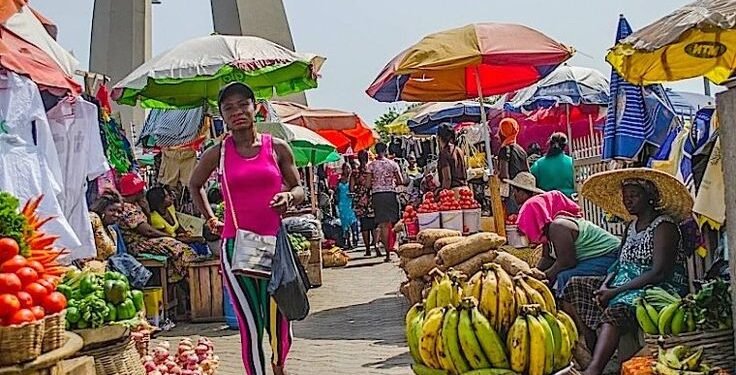Ghanaian movies have gained popularity locally and internationally, with many talented filmmakers and actors making a name for themselves in the industry.
However, despite the growing success of Ghanaian cinema, many movies produced in the country still lack quality production.
Unlike Hollywood or Bollywood productions, Ghanaian filmmakers often have to rely on small budgets, which restricts the quality of the output.
Filmmakers do not have access to high-quality equipment, experienced crew members, or top-notch post-production facilities, all of which are crucial for creating a polished and professional film.
Many filmmakers in Ghana are under pressure to produce films on tight deadlines and limited budgets, which results in rushed productions that lack attention to detail and proper planning.
Despite these challenges, there are many talented filmmakers and actors in Ghana who are working hard to overcome these obstacles and create high-quality productions.
With the support of the government, private investors, and international partnerships, the Ghanaian film industry has the potential to grow and thrive, producing films that compete on a global scale.
As the discussions on the movie industry in Ghana continue, Ghanaian actress Beverly Afaglo has backed claims that the quality of production of many Ghanaian movies is low.
She shared her views on the current state of the country’s movie industry and the challenges stakeholders face.
“There’s no money in the system. One and two, patronage is very low. Ghanaians are not supporting us in any way. I think everybody’s running to YouTube,” she said.
Afaglo suggested a return to traditional methods of screening films in small town halls to reconnect with audiences.
“I think this cinema thing is not working. You should go back to the olden days when you go to the villages and you have a small hall, a town hall or something, that we can just take about 100 to 200 people and let the people feel us, let them watch our movies.
“At the end of the day, when we do one city to another, one village to another, they will get to interact and see that movies are still working because at the moment the major productions are only coming from DSTV.”
Beverly Afaglo
While many Ghanaian movies lack quality production, there is still hope for the industry to improve and produce films that can rival those from more established film industries.
By addressing the challenges facing the industry, Ghanaian filmmakers create films that showcase the talent and creativity of the country’s vibrant film industry.
Distribution Challenges in the Ghanaian Movie Industry

Film producers in Ghana face numerous challenges when it comes to distributing their movies.
Despite the growing popularity of Ghanaian cinema both locally and internationally, the distribution landscape in the country poses significant obstacles for producers looking to get their films in front of audiences.
Unlike countries with well-established film industries, Ghana has a relatively small number of cinemas, which makes it difficult for producers to secure screening opportunities for their movies. This lack of exhibition venues limits the reach of a film and restricts its potential for success at the box office.
Additionally, the dominance of foreign films in the Ghanaian market also poses a challenge for local producers.
Hollywood and Bollywood films are often given preferential treatment by cinemas and distributors, making it harder for Ghanaian films to secure prime screening slots and attract audiences.
Distributors often charge high fees for marketing, promotion, and exhibition, which eats into a film’s budget and reduces the potential profits for producers.

Beverly Afaglo noted that many major productions are only distributed by DStv, which limits the visibility of local content to those without access to the platform.
“So, if you’re even hearing of a producer working, like Shirley Frimpong Manso is working back to back, but it’s from DSTV. It’s not Shirley’s money … So, at the end of the day, if they produce a series or something, it gets on only DStv. There’s no other platform that can have that series.
“How many people have DSTV in Ghana? I was on a series on DSTV and it was constant for five days every week, inside out. But people still see me and ask me, are you still acting? And I said, ‘I’m on TV every day. But it’s on DSTV’. Where would they see us?”
Beverly Afaglo
She also pointed out the significant distribution challenges faced by producers, who struggle to recoup their investments due to the lack of effective distribution platforms.
“And where we see our movie industry right now, distribution is a big problem. And because we don’t have distribution platforms or avenues, people produce and they’re stuck. Because if I put 100,000 or 200,000 into a movie, I expect to recoup it immediately, but we don’t have distribution platforms.”
Beverly Afaglo
“So by the time we finish the premieres, let’s say the person has even recouped like 50,000. The rest of the money, when is he going to get it back? So when that happens, the producers are laid back,” she added.
While producers in Ghana face numerous challenges when it comes to distribution, there are opportunities for the industry to grow and thrive.
With the right support, investment, and collaboration, Ghanaian cinema has the potential to reach new heights and make a significant impact on the global film industry.
READ ALSO: GSE Trading Stagnates with No Share Price Movement























